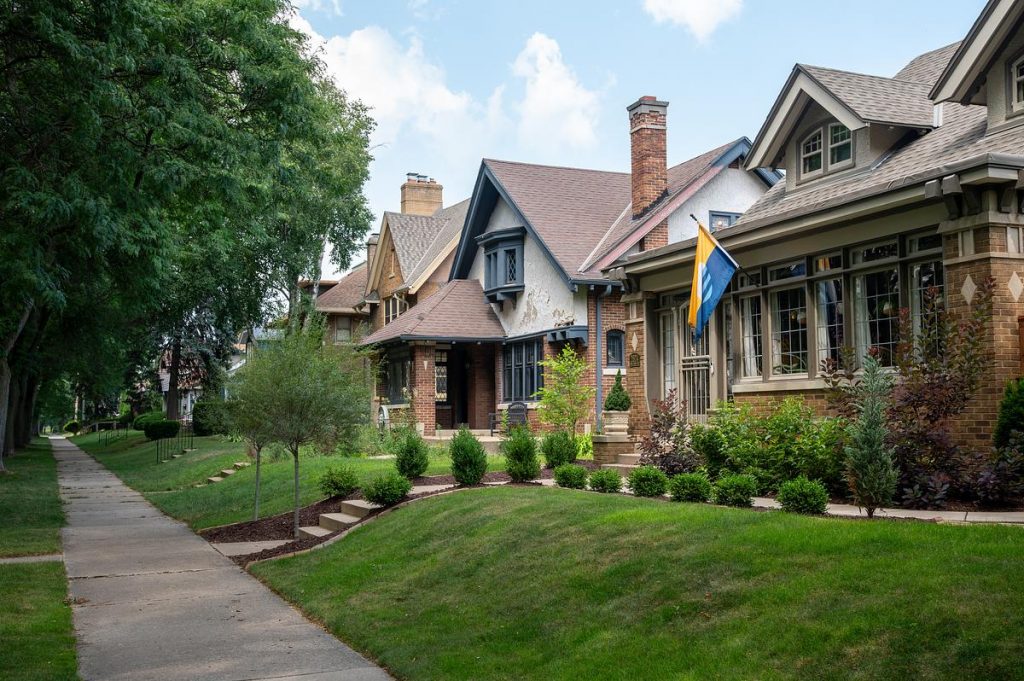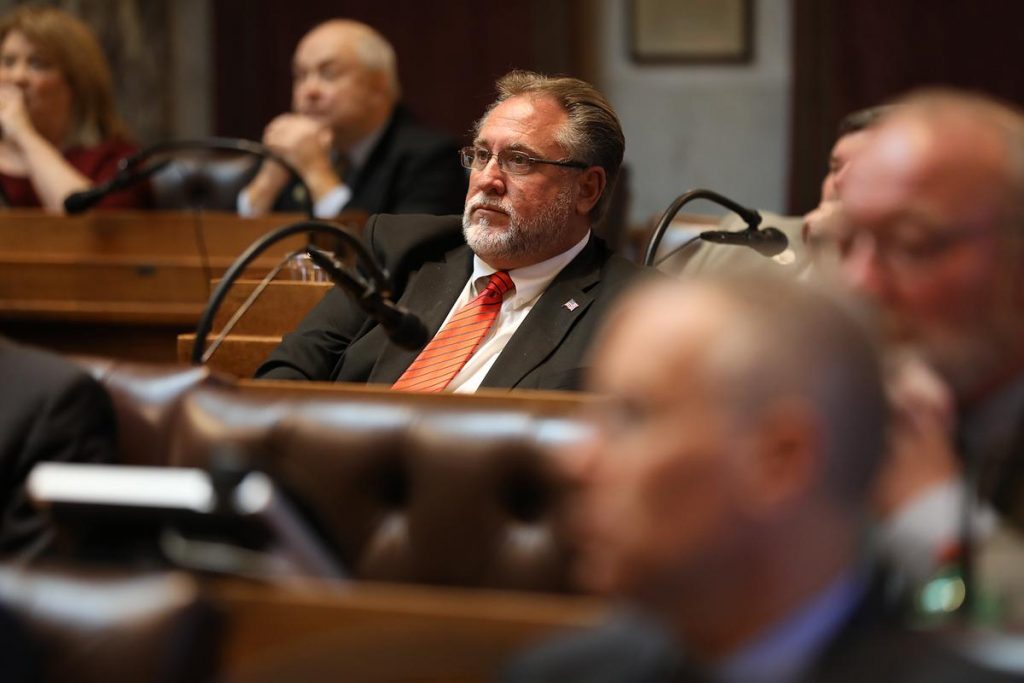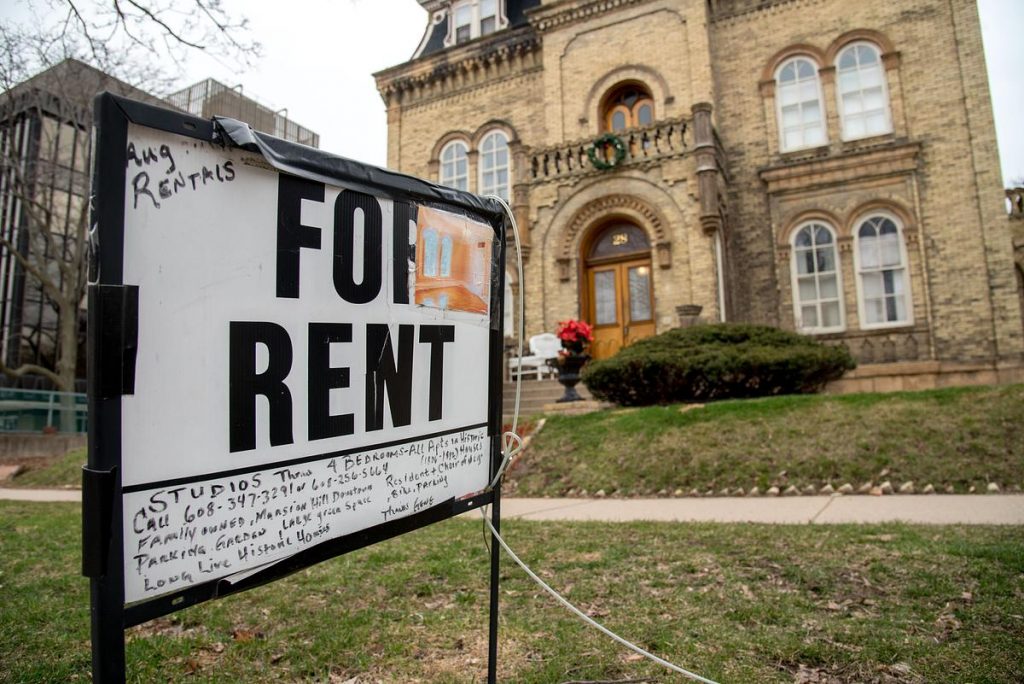How Legislators, Governor Candidate Will Address Affordable Housing Crisis
Do Democrats and Republicans agree on any proposed solutions?

Houses line the street on Aug. 7, 2025 in the Sherman Park neighborhood of Milwaukee. (Photo by Jonathan Aguilar / Milwaukee Neighborhood News Service / CatchLight Local)
The median price of a home in Wisconsin rose nearly 120% over the past decade, from $155,000 to $337,000 according to data from the Wisconsin Realtors Association.
But median Wisconsin incomes have increased only about 50% in that time period, illustrating just one of the reasons why voters and politicians are increasingly concerned about a housing affordability crisis.
But state lawmakers and both Democratic and Republican candidates for governor in 2026 are seeking more ways to address Wisconsin’s housing challenges.
Multiple bills passed through the Assembly in early October, from a proposal with a financial mechanism to ease the costs of infrastructure for building homes to another creating a grant program for converting multifamily housing into condominiums.
Several of the proposals received public hearings in the Senate’s Committee on Insurance, Housing, Rural Issues and Forestry last week and lawmakers could vote on them in the coming weeks.
What bills are in the Legislature?
The housing bills making their way through the Legislature touch on multiple avenues to boost the state’s supply of affordable housing.
One set of proposals creates a residential tax increment district, which can ease the costs of housing infrastructure on developers and lower the initial price of starter homes.
“We’re not talking about subsidized housing, we’re talking about affordable housing … the housing stock that was built just a generation or two ago,” Rep. Robert Brooks, R-Saukville, said at a September press conference. “We’re talking about small ranch homes, bungalow homes, some of those homes built without garages or alleyways or detached garages.”

Rep. Robert Brooks, R-Saukville, is seen during a convening of the Assembly at the Wisconsin State Capitol on Jan. 25, 2020 in Madison, Wis.
Another set of bills would establish a condo conversion reimbursement program administered by WHEDA. Legislation would provide $50,000 per parcel to convert multifamily properties to condominiums, according to the bills. The dollars would be funded through up to $10 million from a WHEDA housing rehabilitation loan program created in 2023.
Other legislative proposals include requiring cities to allow accessory dwelling units on residential land with a single family home. But Wisconsin Manufacturers and Commerce, the state’s largest business lobby, expressed concerns over a prohibition on short-term rentals for accessory dwelling units.
Assembly Democrats in early October argued some of the Republican proposals fall short. An amendment offered by Rep. Ryan Clancy, D-Milwaukee, would have allowed housing cooperatives to participate in the condo conversion program. It failed after Sen. Steve Nass, R-Whitewater, raised concerns about the renovation costs of housing co-ops, which Nass referred to as “communes,” while he disparaged Clancy, a Democratic Socialist, as a “communist.”
“I will be voting for this… but it is so disappointing to have to do that because we had something better in front of us,” Clancy said.
What are candidates for governor proposing?
The candidate field for Wisconsin’s 2026 gubernatorial race is not yet finalized, but housing affordability is a priority for many of the candidates who responded to questions from Wisconsin Watch.
“We need a red tape reset that cuts regulations and lowers costs while keeping safety a priority,” Tiffany said in a statement to Wisconsin Watch.
A campaign spokesperson for Republican Josh Schoemann said the Washington county executive would bring county programs statewide. The Heart and Homestead Earned Downpayment Incentive program helped Washington County residents with down payment loans on homes under $420,000, which could be repaid through volunteering or charitable donations. Another program, Next Generation Housing, brought together developers and local government leaders to encourage development of smaller starter homes in Washington County below $420,000.
Democratic candidates said their housing plans focused on local engagement and encouraging different financial and zoning reforms to boost affordable housing construction in Wisconsin.
A campaign spokesperson for Milwaukee County Executive David Crowley said Crowley would gather local leaders in rural, urban and suburban communities to find housing solutions that fit their communities. Crowley has done this with partners to build affordable housing throughout Milwaukee County, the spokesperson said.
Rep. Francesca Hong, D-Madison, said in a statement that as governor she would use a combination of tax incentives, zoning reform and public bank-backed construction financing stabilization to make it easier to build affordable housing. She said she would also encourage home ownership models such as community land trusts and limited-equity co-ops.

Rep. Robert Brooks, R-Saukville, is seen during a convening of the Assembly at the Wisconsin State Capitol on Jan. 25, 2020 in Madison, Wis.
Sen. Kelda Roys, D-Madison, said she would direct more dollars to existing affordable housing programs to speed up the time it takes for developers to get necessary funding. Roys said she wants changes to zoning laws to allow types of housing that works for certain neighborhoods around the state, such as accessory dwelling units or higher density housing in transit and commercial corridors. Additionally, Roys said she would encourage more market-rate housing development and expand support systems such as housing vouchers to help ease costs of buying a home.
A campaign spokesperson for Missy Hughes, the former head of the Wisconsin Economic Development Corp., said Hughes will share a more “comprehensive vision” of her housing plan over the course of the campaign.
Beer vendor Ryan Strnad said he would be open to increasing subsidies for lower-income housing across the state.
Notable
Watch your mail if you’re a disabled worker. The Wisconsin Department of Workforce Development began sending notices to 13,000 disabled workers who might be eligible for past unemployment benefits they were previously denied.
Several legislative committees meet at the Capitol this week. Here are a few worth watching:
- Assembly Committee on Agriculture: The committee on Tuesday will hold a public hearing on Assembly Bill 30, which would entirely prevent a foreign adversary from acquiring agriculture or forestry land in Wisconsin. The bill follows a national trend of states that are passing stricter prohibitions on who can purchase farmland. Current state law prohibits foreign adversaries from holding more than 640 acres for purposes tied to agriculture or forestry.
- Senate Committee on Health: Lawmakers will hear public testimony during its meeting Wednesday on Senate Bill 534, a Republican-led bill to legalize medical mairjuana and create a regulation office for patients and caregivers tied to the Department of Health Services.
- Assembly Committee on Government Operations, Accountability and Transparency: Lawmakers will hold an informational hearing following a Cap Times report that 200 cases of teacher sexual misconduct and grooming cases were shielded from the public between 2018 and 2023.
This article first appeared on Wisconsin Watch and is republished here under a Creative Commons Attribution-NoDerivatives 4.0 International License.![]()
If you think stories like this are important, become a member of Urban Milwaukee and help support real, independent journalism. Plus you get some cool added benefits.
Political Contributions Tracker
Displaying political contributions between people mentioned in this story. Learn more.




















